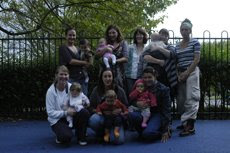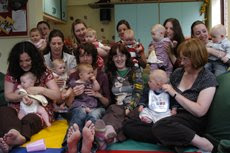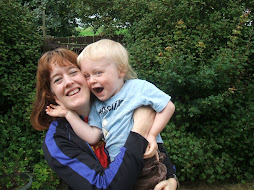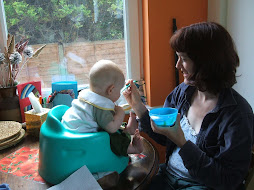When I gave birth to my first child, now 6, I was staggered as to how extraordinarily isolated I felt. Like many other women living in a big city, without a family network around them, I struggled to find my way. I did find activities and playgroups to go to, but the focus was always on the babies and all the conversation related to that.
Most new mothers have periods of being swamped by their feelings and counselling is an option, but you have to be referred by your doctor or health visitor. When you are exhausted and tearful and all the mothers around you seem to be coping better, the prospect of sitting in a busy surgery is not appealing. The very phrase ‘post-natal depression’ is depressing! It is more correct to term it post-natal illness and it’s estimated to affect between 70,000 and 100,000 women and their babies in the UK every year. It is rightly called 'the silent epidemic'(1)
It can be very difficult to admit that you are finding so difficult what many thousands, including your own mother, have done before you. Add to this the stigma that still exists around mental health issues and it’s no wonder the feeling of panic sets in. Every single mother I have spoken to in the last few years has felt they couldn’t find an adequate outlet for their feelings. Of course bringing up children is hard, but there is something about a mother’s state of mind in the months following the first birth that sets it apart from the challenges faced later on in parenthood.
People might say that we have been having babies for centuries. Unfortunately we are living in an increasingly fast-paced society, where you can leave hospital as quickly as a few hours after giving birth and are expected to get on with it. Excepting perhaps small villages, gone are the days when the whole street would rally round to help the new family, while the mother rested and adjusted. Families these days are small, not extended, often you have moved away from where you grew up; women delay having children while they pursue careers and travel, so to be suddenly thrust into the role of housebound new Mum without a support network can be terrifying.
Occasionally there is a high-profile case, such as that of Danielle Wails, where the general public can gasp at the horror of a woman who has killed her own child. There is far less coverage for a mother who has taken her own life. Few will know that more than ten per cent of maternal deaths - that's deaths within one year of giving birth - are caused by suicide (2). Relatively few women take their own lives, but between ten and twenty per cent of all new mothers are likely to suffer depression, and for between a third and a half of these, it will be severe.
“Mothers may be given a “running-in’” period of a couple of weeks. After that, they are usually expected to be calm and capable. Would it not be much more realistic to expect new mothers to be unprepared, anxious, confused and very emotional for at least the first six months? If we could
accept that this beginning is the norm for most new mothers, we would be in a better position to be supportive and respectful.” (3)
Inspired by the Mothers Talking sessions I attended at The Active Birth Centre in London, I decided to set up Mothers Uncovered when I moved to Brighton. There was some initial hesitation from the health professionals I encountered - there might have been the feeling that it was group therapy for middle-class people and not appropriate for the families they represent. However, in the course of setting the groups up, I spoke with women from all different backgrounds who were interested. All is needed is a room and someone to lead the session, quite probably a mother who had been through the same stage herself. It would enable women to feel that they were not mad or bad mothers, just going through an enormous life change.
What I would like to see is equal weight being given to the post-natal period as to the pre-natal. It needs to be realised that the mental health of a mother following a birth is as important as her physical health beforehand. There is a cost implication, but a mother who feels supported will surely relate better to her baby, which would benefit society in the long-term. Finding a supportive group helped me with the sense of panic-stricken alienation I often felt, knowing that others had felt the same as me. Rather than being a strange freak, I was just a normal mother trying to cope with the enormity of the responsibility. That in turn put the feelings in proportion. Some mothers are not so lucky and it is for their sakes I hope the situation will change.
(1) Association for Post-Natal Illness
(2) Royal College of Obstetricians and Gynaecologists (RCOG)
(3) What Mothers Do’ Naomi Stadlen









